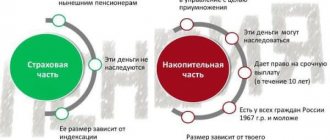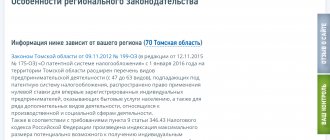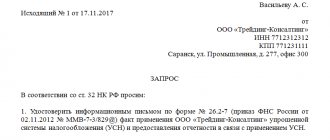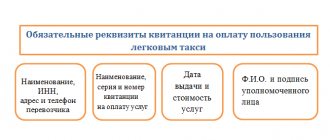Taxes and fees are the main sources of the state budget. Issues related to establishing the procedure for taxing economic entities are a priority in the business life of every taxpayer.
Changes in legislation, increased duties for individuals and legal entities, different interest rates in certain countries contributed to the emergence of the concept of tax residency. For example, the income tax rate in Bulgaria is 10%, in Montenegro - 9%, and in France it varies from 0 to 49%; the obvious difference provides a wide field for choosing and planning your investments.
Concept and features
Tax residence of individuals is a term denoting the status of a subject of economic relations, that is, a person’s membership in the tax system of a particular state.
The origin of the term comes from the Latin language - "residens", which means "sits" or "remains in place."
In immigration law, the concept of residence is used to identify the presence of a permit (permit) to reside in the country of persons with permanent residence and registration, as well as foreigners and people of undetermined citizenship, subject to the laws of the state.
There are often cases when it is beneficial for federations and republics to establish criteria so that as many persons as possible are recognized as residents, and therefore pay interest on all their income.
Some liberal criteria result in no full obligations in any of the countries in which individuals reside and are active. Therefore, it is important to know what tax residency is.
In tax law, a resident is a person or company that is registered with the government agency of the selected country and makes the necessary contributions in accordance with the accepted norms of the law.
That is, you can have a residence permit in one state, but be a resident of another, while paying taxes to the treasury of the chosen place, where it is most profitable.
And vice versa - being a tax subject, you may not have a residence permit, that is, not be a citizen in the migration sense.
The objects from which funds are withdrawn are:
- scholarships;
- salaries;
- pensions;
- profit from the company.
https://youtu.be/sJiJ4283r_U
What is the difference between a tax resident and a non-resident?
According to Article Eleven of the Tax Code of the Russian Federation, NRs of the state are individuals who, in fact, reside in this state for about one hundred and eighty-three days. That is, the residence status of the Russian Federation is determined based on the duration of stay in the country in each calendar year (from the first of January to the thirty-first of December) without taking into account the last and subsequent periods.
A resident is a legal entity or individual entrepreneur that is registered in the country and is fully subject to the law.
A non-resident is a legal entity or individual who operates in one state, but is permanently registered and lives in another.
Non-residents pay tax only on profits they receive from sources within the territory of the Russian Federation. This is where the differences between a resident and a non-resident lie.
Tax residency of legal entities
In the Russian Federation, legal entities may be subject to taxation:
- corporations, companies, enterprises and the like that were created and registered on the territory of the Russian Federation, in accordance with the requirements of national legislation;
- branches of Russian enterprises located abroad, but registered in the Russian Federation and fulfilling the necessary tax obligations (payment of interest to the treasury of the Russian Federation and submission of a declaration to record this fact to the Federal Tax Service).
In the practice of other countries, there are cases when the status of legal entities is determined according to the following criteria:
- The place where the main office of the company is located.
- The country where boards of directors are held, that is, the actual management of the company is carried out.
- The place where the financial departments of the company are located;
- The state where the company's global activities take place (receiving a larger share of profits).
This is interesting
To avoid double taxation, when an organization is registered in one country but operates in several, an international agreement is drawn up. It defines the criteria for income taxation and regulates conflicts of interest in a contractual manner.
The Russian Federation has an international agreement with most other countries that exempts legal entities from tax abroad if they file a declaration on the territory of the Russian Federation. Additionally, it is worth noting that the collection occurs not only from the profit received in Russia, but also in foreign countries.
How to explain these two concepts?
The concept of “resident” means an individual or legal entity who is registered in the territory of the state where he currently resides, and at the same time unquestioningly obeys the laws and regulations of the country.
According to the legislation of the Russian Federation, the following persons have confirmation of the status of a resident of the state:
- People who own an internal Russian passport. The exception is citizens living abroad for a year or more with a residence permit. As well as persons staying abroad for a year or more on a work or study visa.
- An individual located within the sovereign borders of the Russian Federation, where he was officially issued a residence permit. In this case, it is not necessary to have an internal passport.
- Any legal entity registered in accordance with the laws of Russia.
- Representative offices and subsidiaries located outside Russian territory, but registered in accordance with the law.
- Diplomatic institutions and consulates of the Russian Federation located abroad.
- All municipalities and entities that are part of.
In order to be considered a resident, you must meet the above points.
Tax residence of an individual
A tax resident in the status of an individual is a citizen of the state, a foreigner or a stateless person who fulfills obligations to the regulatory authority of the state, in accordance with the current national legislation.
Different countries set their own criteria for determining and calculating taxes for individuals.
For example, in order to have the status of a tax subject in the Russian Federation, you need to meet the following requirements:
- non-stop continuous residence in the Russian Federation for 183 or more calendar days during the year;
- have permanent registration and fulfill tax obligations provided for by the regulations;
- Both citizens of our country and people who are not citizens of our country, or stateless persons who fulfill tax obligations due to their long stay and activities in the territory of the Russian Federation, can have this status;
- military personnel and civil servants staying abroad on duty or work, regardless of the duration of absence.
According to Article 224 of the Tax Code of the Russian Federation, for resident individuals, the income tax rate is 13%, and for non-resident individuals - 30%. In some cases the percentage may vary. So, for example, it is envisaged to reduce the interest rate on personal income in the form of dividends to 9%.
Below in tabular form is the percentage of taxation for different categories of the population.
| Status of an individual | Tax rate, % |
| Resident | 13 |
| Non-resident | 30 |
| Individuals receiving income in the form of dividends as participants in resident companies | 15 |
| Foreign citizens working under a patent and classified as highly qualified specialists | 13 |
Other states may be guided by additional criteria when issuing tax resident status, among which citizenship, own or rented housing, family registration, length of stay in a particular place and economic interests of individuals and legal entities play a significant role.
Also, as in the case of companies, an ordinary person can be considered a tax subject of several countries, this is also regulated through the conclusion of contractual agreements to avoid double taxation.
In addition to this common status, the term "domicile" is often used. This concept, which makes it possible to specify the payer’s connection to the jurisdictional zone, usually characterizes the place of residence or registration.
Tax resident status of the Russian Federation for personal income tax purposes
Another calendar year will soon come to an end. And the last day of December is the date on which it is necessary to determine the tax status of individuals in order to correctly calculate personal income tax, since the tax rate depends on it, as well as the right to receive tax deductions. Therefore, while there is still time, let’s try to figure out how the tax status of an employee affects the personal income tax rate, how to correctly determine the status of an individual, how to calculate the period of stay in Russia, and what documents to confirm the actual location of the taxpayer.
Tax resident in legislation
The concept of “tax resident” is given in Art. 207 of the Tax Code of the Russian Federation. Tax residents are individuals who are actually in the Russian Federation for at least 183 calendar days over the next 12 consecutive months. At the same time, the period of stay of an individual in the Russian Federation is not interrupted by periods of his departure outside the territory of Russia for short-term (less than 6 months) treatment or training, as well as for the performance of labor or other duties related to the performance of work (provision of services) in offshore hydrocarbon fields raw materials.
Russian military personnel serving abroad, as well as seconded employees of state authorities and local governments outside the Russian Federation are recognized as tax residents of the Russian Federation, regardless of the actual time spent in the Russian Federation (clause 3 of Article 207 of the Tax Code of the Russian Federation).
Whether an individual has or does not have Russian citizenship, place of birth and place of residence, the status of a foreign worker (temporarily staying, temporarily residing, permanent resident) do not matter when determining his tax status in the Russian Federation.
The place of residence of an individual’s family also does not matter (Letter of the Ministry of Finance of Russia dated November 19, 2015 No. 03-04-05/67148).
However, according to Art. 7 of the Tax Code of the Russian Federation, if an international treaty of the Russian Federation establishes rules and norms other than those provided for by the legislation of the Russian Federation on taxes and fees, then the rules and norms of international treaties are applied. For example, the Federal Tax Service of Russia (Letter dated October 1, 2012 No. OA-3-13 / [email protected] ) indicated that an international agreement may establish a different procedure for determining the residence of an individual.
For example, in paragraph 1 of Art. 4 of the Agreement between the Government of the Russian Federation and the Government of Ukraine dated 02/08/1995 states that the expression “resident of one Contracting State (hereinafter - DC)” means a person who, according to the legislation of this Contracting State, is subject to taxation there on the basis of permanent residence, permanent residence, place of registration or another similar sign. This expression does not, however, include a person who is subject to tax in that DG only if that person derives income from sources in that DG or in respect of property located therein.
Similar rules are contained in Agreements with the Republic of Cyprus, the Republic of Latvia, the Republic of Lithuania, the Republic of Germany, the Kingdom of Belgium, the Republic of Austria, the Republic of Indonesia, the State of Kuwait, the State of Qatar, the Italian Republic, the Democratic Socialist Republic of Sri Lanka and others.
According to the explanations of the Ministry of Finance of Russia (Letter No. 03-04-05/30670 dated June 26, 2014), the tax status of an individual must be determined for each date he receives income based on the actual time the individual is in Russia.
Calculation 12 months and 183 calendar days
As stated in paragraph 2 of Art. 207 of the Tax Code of the Russian Federation, tax residents of the Russian Federation are recognized as individuals who are actually in the Russian Federation for at least 183 calendar days over the next 12 consecutive months.
At the same time, the provisions of the Tax Code of the Russian Federation do not contain requirements for the continuity of the specified 183 days (Letter of the Federal Tax Service of Russia dated August 30, 2012 No. OA-3-13 / [email protected] ).
As the Ministry of Finance of Russia explained, 183 days of stay in the Russian Federation, upon reaching which an individual will be recognized as a tax resident of the Russian Federation, are calculated by summing up all calendar days in which he was in the Russian Federation for the next 12 consecutive months. When determining the tax status of an individual, it is necessary to take into account the 12-month period determined on the date of receipt of income, including those that began in one tax period (calendar year) and continued in another tax period (calendar year) (Letter of the Ministry of Finance of Russia dated April 26, 2012 No. 03-04-06/6-123). Similar explanations are given in letters of the Ministry of Finance of Russia dated July 16, 2014 No. 03-04-05/34618, dated April 4, 2014 No. 03-04-05/15215, dated May 22, 2012 No. 03-04-05/6-654, dated March 28 .2012 No. 03-04-06/6-81, dated 02/21/2012 No. 03-04-05/6-206, dated 04/05/2012 No. 03-04-05/6-444, dated 07/14/2011 No. 03- 04-06/6-170, dated 07/14/2011 No. 03-04-06/6-169.
These rules are applied by tax agents, including employers, on the date of actual receipt of income in accordance with the provisions of Art. 223 of the Tax Code of the Russian Federation (Letter of the Federal Tax Service of Russia dated August 30, 2012 No. OA-3-13 / [email protected] ). Similar conclusions are set out in letters of the Ministry of Finance of Russia dated July 14, 2011 No. 03-04-06/6-170, dated July 14, 2011 No. 03-04-06/6-169, dated May 19, 2011 No. 03-04-06/6- 117.
The final tax status of an individual is determined at the end of the year (letters of the Ministry of Finance of Russia dated July 16, 2014 No. 03-04-05/34618, dated March 19, 2013 No. 03-04-06/8402, dated April 4, 2014 No. 03-04-05/ 15215, dated 03/28/2012 No. 03-04-06/6-81, dated 02/21/2012 No. 03-04-05/6-206, dated 02/10/2012 No. 03-04-06/6-30).
The period of stay of an individual in the Russian Federation is not interrupted by periods of his travel outside the territory of the Russian Federation for short-term (less than 6 months) treatment or training, as well as for the performance of labor or other duties related to the performance of work (provision of services) in offshore hydrocarbon fields.
At the same time, the norms of the Tax Code of the Russian Federation do not contain restrictions on age, types of educational institutions, academic disciplines, medical institutions, diseases, as well as on the list of foreign countries (Letter of the Federal Tax Service of Russia dated September 23, 2008 No. 3-5-03 / [email protected] ). The main condition is short-term treatment and training (less than 6 months).
If an individual has concluded an agreement with a foreign educational institution providing for a period of his study in a foreign country exceeding 6 months, the days of the individual’s stay outside the Russian Federation for the purposes of this training cannot be taken into account when calculating the days of his stay in Russia (Letter of the Ministry of Finance of Russia dated 10/08/2012 No. 03-04-05/6-1155).
Days of arrival on the territory of the Russian Federation and departure from the Russian Federation are included in the number of days of actual stay on the territory of Russia (Letters of the Ministry of Finance of Russia dated 04/20/2012 No. 03-04-05/6-534, dated 03/21/2011 No. 03-04-05/6 -157, dated December 29, 2010 No. 03-04-06/6-324, dated December 1, 2010 No. 03-04-06/6-283).
Documentary confirmation of status
The norms of the Tax Code of the Russian Federation and other regulations do not establish a list of documents confirming the presence of individuals on the territory of the Russian Federation.
Individuals - citizens of the Russian Federation are not required to provide a tax agent with confirmation that such persons are tax residents of the Russian Federation (Letter of the Federal Tax Service of Russia dated March 13, 2008 No. 04-1-01/0911). The taxpayer may submit to the tax agent the relevant documents necessary to withhold tax in accordance with his tax status, independently or at the request of the tax agent (Letters of the Ministry of Finance of Russia dated 02/04/2008 No. 03-04-07-01/20, Federal Tax Service of Russia dated 09/23/2008 No. 3-5-03/ [email protected] ). Moreover, if, at the request of a tax agent, an individual does not submit documents, then he can be considered a tax non-resident (Letter of the Ministry of Finance of Russia dated August 12, 2013 No. 03-04-06/32676).
The time of stay in the Russian Federation can be confirmed depending on the situation (letters from the Ministry of Finance of Russia dated January 13, 2015 No. 03-04-05/69536, dated June 28, 2012 No. 03-04-06/6-183, dated April 26, 2012 No. 03-04 -05/6-557, dated 03/16/2012 No. 03-04-06/6-64, dated 05/16/2011 No. 03-04-06/6-110, dated 02/05/2008 No. 03-04-06-01/ 31, Federal Tax Service of Russia dated July 22, 2011 No. ED-4-3/ [email protected] , dated May 16, 2006 No. 04-2-05/3, Federal Tax Service of Russia for Moscow dated July 22, 2008 No. 28-11/070040) :
-employment contract;
– certificates from the place of work;
-working time sheet;
– certificates from the educational institution;
–copies of a passport with border crossing marks from border control authorities;
– certificate of registration at the place of temporary residence;
– original (certified copy) of the registration slip and an extract from the registration journal of the passport and visa department – for foreigners;
–receipts for hotel accommodation;
– other documents confirming the period of stay of an individual in the Russian Federation (travel tickets, business trip orders, waybills, etc.).
A residence permit does not confirm the actual time an individual is in Russia, but is a document confirming his right to reside in the Russian Federation, as well as his right to free exit and entry into the country (letter from the Ministry of Finance of Russia dated July 17, 2009 No. 03-04-06 -01/176, dated October 26, 2007 No. 03-04-06-01/362).
The presence of a migration card containing a mark from the border control authority about entry into the Russian Federation cannot in itself be a confirmation of the actual presence of its holder on the territory of the Russian Federation after the date of entry (Letter of the Ministry of Finance of Russia dated December 29, 2010 No. 03-04-06/6-324) .
Long business trip abroad
If a business trip lasts more than six months, the employee may lose the status of a tax resident of the Russian Federation, and the accountant will have a question: how to tax the employee’s income?
Articles 167 and 168 of the Labor Code of the Russian Federation establish that when an employee is sent on a business trip, he is guaranteed to retain his place of work (position) and average earnings, as well as reimbursement of travel expenses related to the business trip and rental of living quarters. Daily allowances are also refundable.
According to the explanations of the Federal Tax Service of Russia (Letter No. ED-4-2/4938 dated March 19, 2014), the amount of an employee’s average earnings, daily allowances, and the amount of reimbursement of travel expenses are in essence a guarantee and are not recognized as remuneration for performing work duties outside the Russian Federation, but relate to income from sources in the Russian Federation.
Therefore, the average salary retained by an employee who is not a tax resident of the Russian Federation during the performance of his work duties abroad, on the basis of Art. 224 of the Tax Code of the Russian Federation is subject to personal income tax at a rate of 30%. If the employee is a tax resident of the Russian Federation, this income is subject to taxation at a rate of 13%.
But, in addition, we should not forget about the norms of international treaties (Article 7 of the Tax Code of the Russian Federation). For example, the Letter of the Ministry of Finance of Russia dated March 31, 2014 No. 03-04-06/14253 considers the situation when an organization sends its employees to Uzbekistan to provide services under an agreement with a resident of the Republic of Uzbekistan. With reference to the Agreement between the Government of the Russian Federation and the Government of the Republic of Uzbekistan on the avoidance of double taxation of income and property dated March 2, 1994, the Russian Ministry of Finance concluded that since employees of an organization providing services in Uzbekistan lose the status of tax residents of the Russian Federation, their income not related to to wages, in particular the amount of average earnings for the time they were on a business trip, during which they were recognized as tax residents of Uzbekistan, are subject to taxation in Uzbekistan.
Short-term treatment and training
As stated above, periods when an individual travels outside the Russian Federation for short-term (less than 6 months) treatment or training for the purpose of determining his tax status are included in the days of such a person’s stay in the Russian Federation.
In order to take into account the period of short-term study or treatment abroad in the number of days spent on the territory of the Russian Federation, it is necessary that the purpose of departure was precisely short-term study or treatment. If an individual was abroad for other purposes and during this period studied or received treatment for up to 6 months, days of study (treatment) are not included in the period of stay in the Russian Federation (Letter of the Ministry of Finance of Russia dated September 26, 2012 No. 03-04-05/6- 1128).
The norms of the Tax Code of the Russian Federation do not contain a list of documents indicating that an individual was abroad for the purposes of training or treatment. The Ministry of Finance of Russia in Letter dated June 26, 2008 No. 03-04-06-01/182 explained that documents confirming the presence of an individual outside the Russian Federation for treatment or training may be contracts with medical (educational) institutions for treatment (training), certificates , issued by medical (educational) institutions, indicating the provision of treatment (training), indicating the time of treatment (training), as well as copies of the passport with marks from border control authorities about crossing the border.
And the Federal Tax Service of Russia in Letters dated October 15, 2015 No. OA-3-17/ [email protected] and dated May 28, 2013 No. OA-4-13/9604 noted that documents confirming the actual presence of individuals outside the Russian Federation for training purposes can be copies of pages of a foreign passport with special (study) visas issued by consular authorities of foreign states, and marks of border control authorities on crossing the border, as well as copies of agreements with foreign educational and other institutions on the provision of relevant services.
The norms of the Tax Code of the Russian Federation do not provide for restrictions either on the type of training or on the nature of treatment abroad. The main requirement is that the period of departure for training (treatment) should not exceed 6 months.
There are also no requirements for mandatory confirmation of the period of short-term treatment with a certificate of incapacity for work established in the Russian Federation. Therefore, the absence of a certificate of incapacity for work during the period of treatment abroad does not affect the procedure for determining the tax status of an individual for the purposes of calculating personal income tax.
However, it may also happen that an employee falls ill while on a business trip abroad, and the treatment period is less than 6 months.
In this situation, the time spent undergoing treatment abroad will not be taken into account as the time spent on the territory of the Russian Federation, since the purpose of the trip is a business trip, not treatment, that is, the purpose of traveling abroad is not related to the treatment of an individual (Decision of the Leninsk-Kuznetsk City Court of the Kemerovo Region dated 12/18/2012 No. 2-3078).
In addition, according to clarifications of the Ministry of Finance of Russia, the days an individual is outside the Russian Federation for the purpose of short-term (less than 6 months) training are taken into account when calculating the days an individual is in the Russian Federation only if the individual leaves Russia for the purposes of the specified training and returns to Russia after completing training (Letter dated September 26, 2012 No. 03-04-05/6-1128).
Other grounds for tax residency
According to the Federal Tax Service of Russia (Letter No. OA-3-17/ [email protected] ), it follows from the provisions of international treaties of the Russian Federation on the avoidance of double taxation that an individual can be considered a tax resident of Russia if he has a permanent residence there. housing. In this case, the presence of a permanent home is confirmed by the fact that the residential property is owned or by a valid permanent registration at the place of residence in Russia.
That is, the mere fact that an individual is in the Russian Federation for less than 183 calendar days during a tax period (calendar year) does not automatically lead to the loss of the status of a tax resident of the Russian Federation.
In this case, the distribution of tax rights of the contracting states in relation to income from work is made on the basis of the provisions of special articles of these treaties, similar to those contained in Art. 14 of the Model Agreement, approved by Decree of the Government of the Russian Federation of February 24, 2010 No. 84, according to which remuneration received by a resident of one DG in relation to work for hire carried out in another DG is taxed only in the first specified state if the following conditions are simultaneously met:
– the recipient is in another DG for a period or periods not exceeding in the aggregate 183 days in any 12-month period beginning or ending in the relevant tax year;
– the remuneration is paid by the employer or on behalf of the employer who is not a resident of another DG;
– the costs of paying remuneration are not borne by the permanent establishment that the employer has in another DC.
Similar clarifications from the Federal Tax Service of Russia were given in letters dated October 29, 2015 No. OA-3-17/ [email protected] , dated January 16, 2015 No. OA-3-17/ [email protected] In addition, the agency indicated another basis for tax residency - the presence an individual in one of the states with a center of vital interests. It is determined by the location of the family, main business or work.
How to determine a tax resident
Russian legislation does not require mandatory compliance with certain rules in order to determine a tax resident. If an individual or legal entity meets the criteria, then its status must be confirmed with the following documents:
- certificates confirming the place of residence and registration of individuals;
- ID card (passport);
- a note in the passport about the passage of border control and border crossing;
- migration card data;
- a control document that records the time spent working in the country;
- applications to the institution (Interregional Inspectorate) of the Federal Tax Service.
It is important
Determining tax status is very important because its presence directly affects the amount of final income of individuals and legal entities and the interest rates they will pay.
Examples of personal income tax calculation for residents and non-residents
Example 1.
Zosimova A.N. is a tax resident of the Russian Federation and receives a salary of 34,000 rubles, she has a child and, in accordance with the application of Zosimova A.N., she was granted a standard tax deduction of 1,400 rubles. Personal income tax will be withheld from wages, taking into account the deduction. We count: (34000-1400)*13%=4238 rub. personal income tax will be deducted from her salary and Zosimova A.N. will receive 34,000-4238 = 29,762 rubles.
Example 2.
Zosimova A.N. stayed less than 183 calendar days in the Russian Federation, her status changed to non-resident. She started working again. The salary is still 34,000 rubles, but she will no longer be provided with a tax deduction for the child. In addition, the tax rate on personal income will be 30%. We count: 34000*30%=10200 rub. the amount of personal income tax that will be withheld from wages. The amount to be issued in person will be 34,000-10,200 = 23,800 rubles.
Author: Ilyina Elena
How to become a tax resident
In addition to clarifying the legal relations of individuals and legal entities with tax authorities within the country, you can obtain confirmation of residence so that there is no conflict of interest and the need to prove it while conducting active activities abroad.
Many states already issue appropriate certificates. You can also obtain them on the territory of the Russian Federation by contacting the Federal Tax Service in person or by filling out an application online. It must contain the following information:
- Full name of the individual or company name;
- tax identification number (TIN);
- the country to which the certificate will be presented.
The deadline for responding to an application is a calendar month. If your request is granted, you can receive this certificate in paper or electronic form.
How to obtain and confirm residency status
Establishing or confirming HP status is necessary for an individual or company:
- when a company from Russia provides services to a foreign organization (to prevent cases of double taxation of a foreign company, confirmation of the status of an IR may be required);
- provision of services by a citizen of the Russian Federation or individual entrepreneur to a foreign partner;
- receiving income (dividends) from a foreign company;
- requesting information about the status of an IR from a foreign tax authority.
At the request of the taxpayer, the Federal Tax Service is obliged to issue him a document confirming his resident status (Article 16 of the Tax Code). In addition to the application, the payer must provide other documents to the Federal Tax Service.
For an individual, the package of documents must include information:
- about personal data of the person (full name);
- the year for which you need to receive notification;
- ID card or TIN;
- the period of stay of the person on the territory of the Russian Federation.
The organization requires the following package of documents:
- sheet with the name of the organization;
- TIN, year for which the notification is issued;
- data according to which the organization is recognized as HP.
In addition, the individual must provide:
- document on income in a foreign country;
- property ownership documents;
- copies of payments, certificates.
Documents can be submitted to the Federal Tax Service in person, by mail or via the Internet.
The Federal Tax Service is obliged to issue a corresponding notification no later than 40 days from the date the person submits the documents.
Final tax status - resident
At the end of the calendar year, some employees may change their personal income tax status.
For example, foreign citizens hired this year as non-residents may become tax residents at the end of this year, as a result of which it is necessary to recalculate their personal income tax on all income received in the current year, based on a 13 percent rate (). () letters of the Federal Tax Service of Russia dated September 21, 2011 No. ED-4-3/ [email protected] , Ministry of Finance of Russia dated November 15, 2012 No. 03-04-05/6-1301, dated April 16, 2012 No. 03-04-06/6 -113, dated 02/10/2012 No. 03-04-06/6-30
There are two options for this calculation, which depend on exactly when the employee acquired final resident status.
Option one: recalculation is made before the end of the tax period, if the employee’s status cannot change.
Example
On March 9, a citizen of Tajikistan came to Russia for the first time and got a job. He acquired permanent resident status for this year only on September 8, that is, on this day his period of stay in Russia was 183 days (23 days in March + 153 days from April to August + 7 days in September). Therefore, starting from September 8, the organization has the right to recalculate the personal income tax withheld from it for March-August based on a rate of 13%. And starting from the salary for September, personal income tax can be withheld from him at a rate of 13%.









